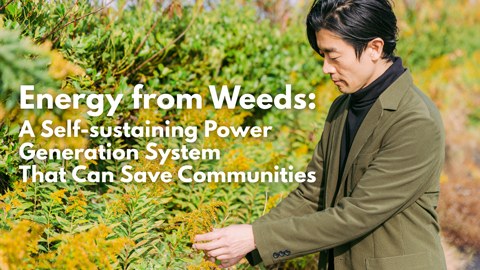With the aim of fostering new types of talent to contribute to an increasingly borderless world, Japan’s first full-boarding primary school, which offers bilingual education, is now gaining widespread attention. Here we shed light on the advantages of young children living together and learning in an international atmosphere, and the reasons why Hiroshima Prefecture hosts pioneering initiatives that promote international education.
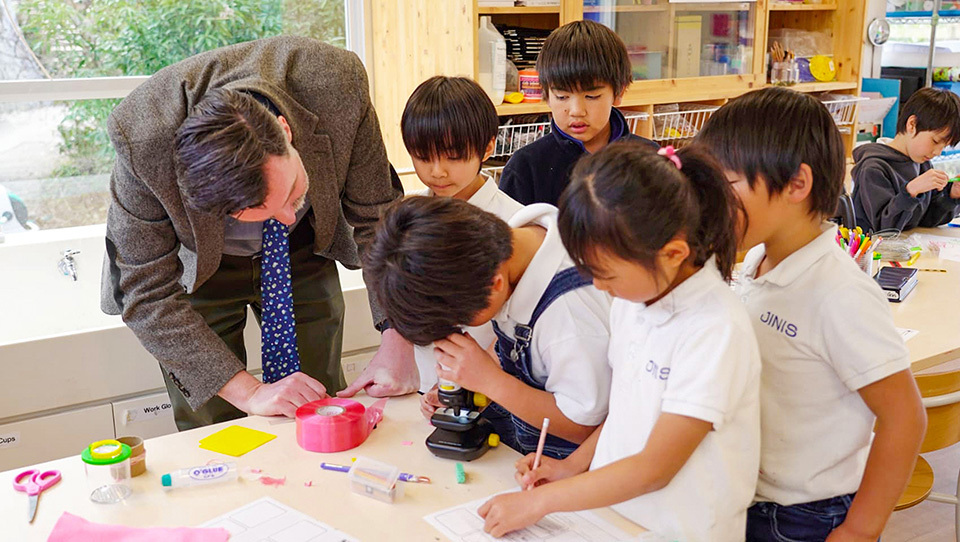
At Jinseki International School (JINIS), the language used in the classroom depends on the individual theme and the grade level. In every class, teachers encourage students to take the initiative to learn independently through their experiences. JINIS
We are entering an era in which, as technological innovations and other changes make the world increasingly borderless, it is becoming ever more important for children to acquire a global mindset from an early age, and, amid advancements in AI and robot technologies, to develop creativity and an inquisitive mind. Accordingly, interest in international schools has been piqued in Japan in recent years. Attracted by what they offer—the opportunity to learn English while living in Japan, an international environment, and a curriculum that emphasizes inquiry-based learning—more and more parents are enrolling their children in such schools. Various kinds of international schools are now opening throughout Japan: not only branches of prestigious European learning institutions, but also schools with uniquely “Japanese” features.
One such school is Jinseki International School (JINIS), which opened in 2020 in Hiroshima Prefecture, western Japan. The first full-boarding primary school in Japan, JINIS’s major trait is that despite its being primarily international in nature, it also attaches importance to teaching the Japanese language and culture. “Understanding local culture and history is an extremely important criterion for people working on the global stage. It is a source of identity and is also essential to understanding the culture and history of other countries, which is crucial in building good relations. We want to nurture those seeds during the primary school years, when children acquire their physical and mental foundations, by providing them with various experiences,” said SUEMATSU Minako, the school’s founder and chairperson.
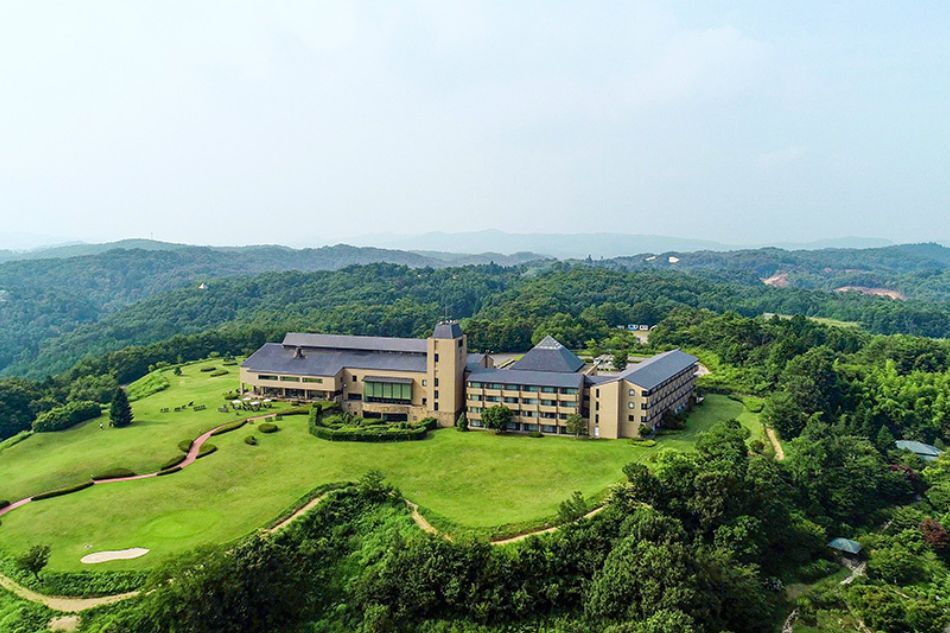
JINIS boasts an expansive campus on Jinseki Plateau, about a 90-minute drive from Hiroshima City. Currently, 44 students between the ages of six and 12 live and study together here. JINIS
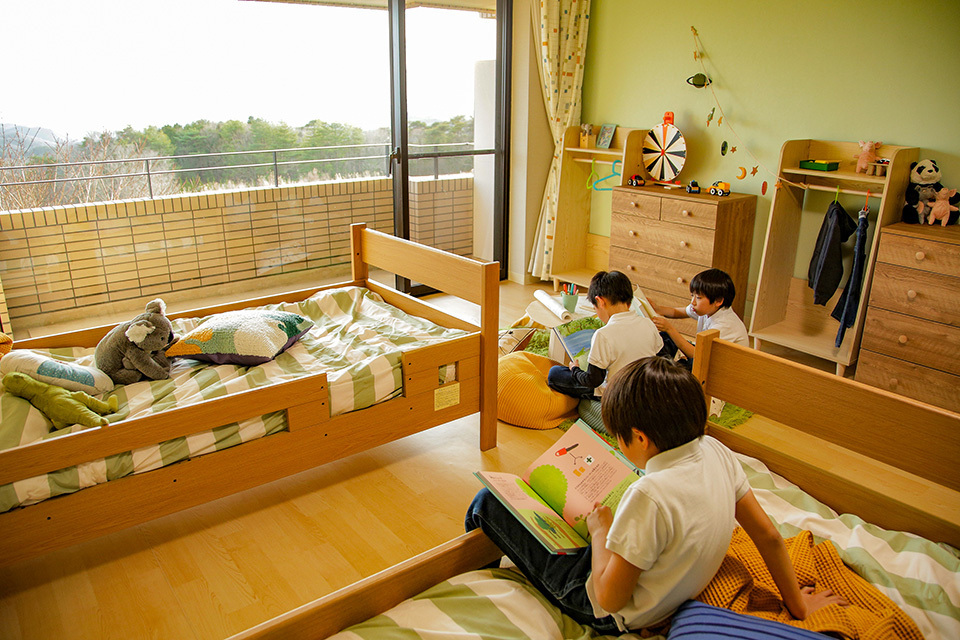
In the dormitory, students live together in double or triple rooms, where they learn to adopt regular routines and become well mannered. JINIS
The classes taught at JINIS are based on the national curriculum guidelines of Japan, and aim to incorporate the guidelines of the International Primary Curriculum, which is widely used in international schools around the world and places priority on an exploratory style of learning that looks deeply into themes from multiple perspectives. About 40% of the classes are conducted in Japanese, and importance is also placed on hands-on classes on elements of Japanese culture such as the traditional tea ceremony and calligraphy. On the lush green grounds of the campus located on the Jinseki Plateau, extracurricular activities in nature are organized after school and on weekends, such as seasonal farming experiences and outdoor pursuits.
It is precisely because JINIS is a boarding school that students can engage in such a broad range of experiences, as it holistically arranges curricular and extracurricular schedules, which include weekends. “Of course, some people think that primary school children are too young for boarding school. But allowing professionals to thoroughly guide and provide children with the education and opportunities they need has arguments in its favor,” said Suematsu, who had her own child attend a boarding school in Switzerland.
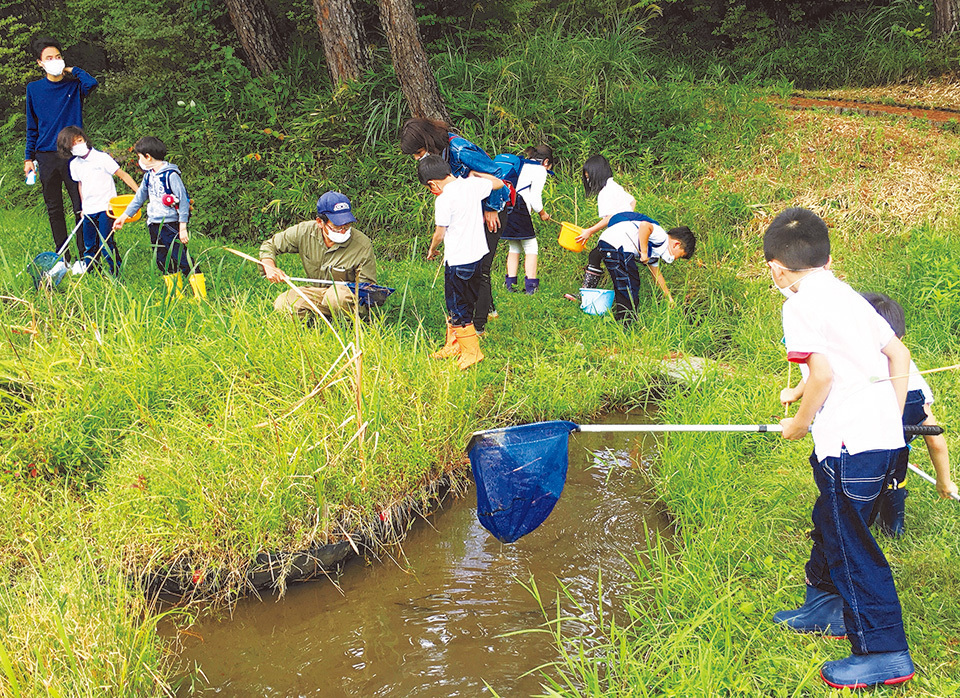
After school and on weekends, students can pursue a diversity of outdoor activities such as sports, farming, and insect collecting. Field trips, which include visiting a local temple or an art festival, are also regularly planned. JINIS
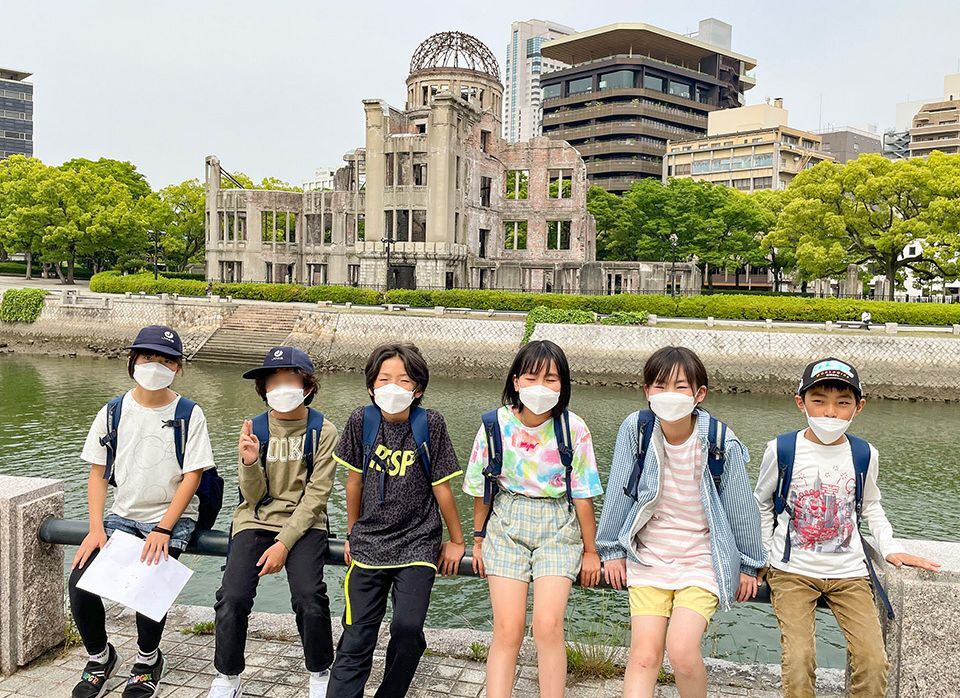
Emphasis is also placed on peace education at JINIS. In addition to regular classes, students in the upper grades take field trips to Hiroshima City, touring such sites as the Hiroshima Peace Memorial Museum, which recounts the history of the atomic bomb that was dropped on the city in 1945, and the Genbaku Dome (background), the damage to which has been symbolically preserved. JINIS
Many other new initiatives in international education are successfully being launched in Hiroshima. They include the 2019 opening of a public boarding school called the Hiroshima Global Academy—an integrated junior/senior high school that is International Baccalaureate-accredited—and the founding of the Thunderbird School of Global Management-Arizona State University-Hiroshima University Global Initiative in 2022. Regarding her choice of Hiroshima for the location of JINIS, Suematsu, who was born and raised in the prefecture, explained that “Hiroshima is like a condensed version of Japan. It has diverse nature, from a mild ocean to snowy mountains, and there is easy access to both the Kansai and Kyushu regions. At the same time, as the site of the world’s first A-bombing in 1945, it has a long history of sending messages out to the world about the importance of peace. Students can experience all those various aspects. It was only after I left my hometown that I realized what a blessed environment I had grown up in.”
Many students at JINIS hope to attend boarding school overseas after graduating, but they can also go on to middle school in Japan. “There is one student who, already knowing both English and Japanese, wants to study one more language from middle school and go on to work someday for the United Nations,” said Suematsu. “There are so many future paths available to them. It is up to the individual student to decide which one to follow.”
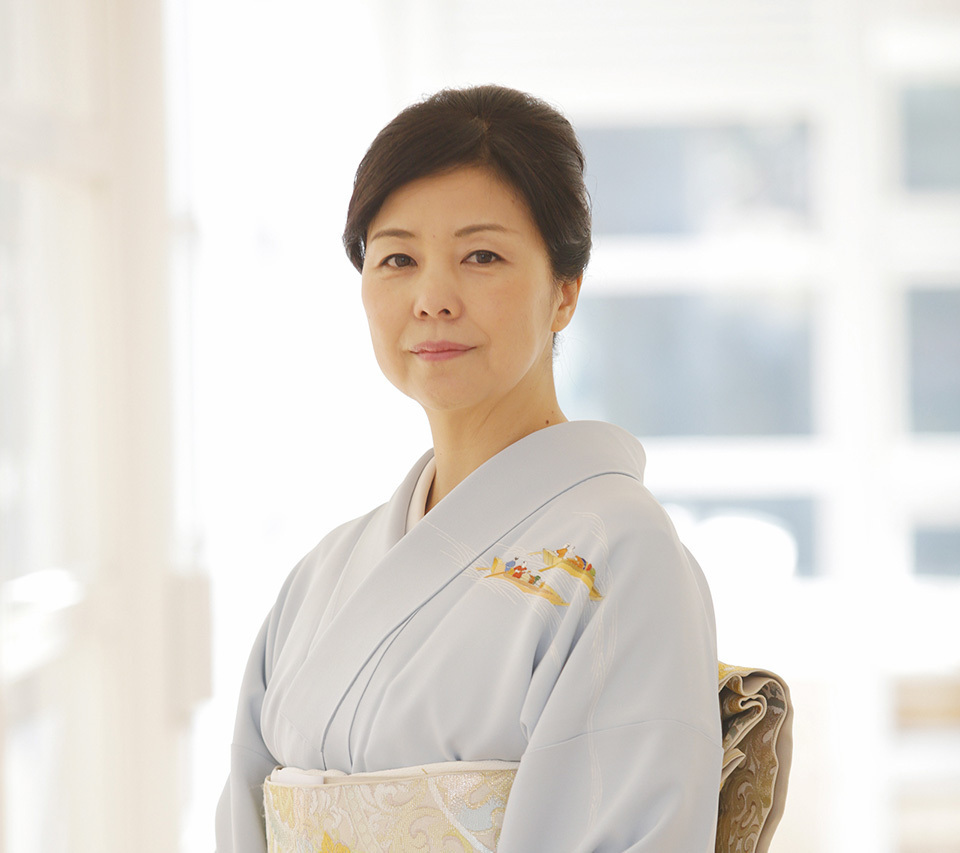
SUEMATSU Minako, chairperson of JINIS, founded the school in 2020. She said, “I want to deliver students a kind of learning that is based on experiences, as opposed to just overloading them with knowledge, in a safe and open environment.” JINIS




























